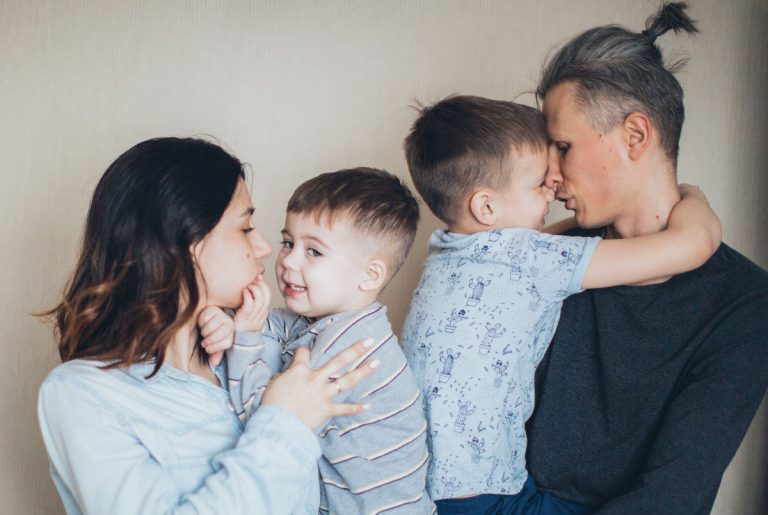If you’re worried someone you love is experiencing domestic and family violence, it can be incredibly challenging to know how to handle it.
Should you say something to them? How do you bring it up? What if they get angry or upset at you?
The decision is racked with complexities but if someone is in that position, it’s vital that they know they’re supported.
To help you have a conversation in a loving and sensitive way, we spoke with Grace, our Family Safety Practice Specialist. Grace is a trained social worker and has recently completed her PhD research on domestic and family violence interventions.
If I’m worried about someone, should I raise the topic? Or wait for them?
The bottom line: yes. If you feel safe enough to do so and it’s important to you, Grace says you should trust your gut and follow it.
“It can be really difficult for people experiencing domestic and family violence to talk about it openly because they’re worried about being judged or not believed,” she says.
In other cases, people might not be sure or realise they’re a victim-survivor of domestic and family violence. By talking to them, it could validate or highlight concerns they’ve been keeping to themselves.
Grace says you should check in with how you feel as well – you want to feel emotionally sound and resilient to have the conversation and take care of yourself throughout the process. If you feel like you might not be up for it, you could share your concerns with a trusted friend or family member (scroll down for more advice on this).
Where’s the best place to have a conversation? Could I do it online or over the phone?
Grace says the best option is to have the conversation in-person, perhaps when you’re in a public place and out of the house so you can’t be overheard by anyone in the home that could be the person causing harm. You want to make sure they feel safe and comfortable speaking openly.
Some people will feel more relaxed talking side-by-side, or shoulder to shoulder. This could look like a walk or while you’re driving, so they don’t have to keep eye contact.
If you live far away from your loved one or are struggling to see them in-person, you could initiate something online. Some people who use violence can check phones or use surveillance, meaning their partner doesn’t have privacy. With this in mind, your first message should be focused on making a plan where they can have a confidential conversation. You could say:
- “I really want to talk to you about something important. Is it okay for me to put it via text or can I give you a call when you’re by yourself?”
What should I say – and is there anything to avoid?
If you decide to start the conversation, Grace encourages people to come with a sense of curiosity and openness. She suggests focusing on your loved one and their feelings instead of their partner, as they might become defensive of their relationship. You could try open-ended questions like:
- “I’ve noticed you’ve been distracted/preoccupied/distant lately. I just want to see if everything’s okay with you?”
- “I’ve noticed a few times where I felt really worried about how you’re feeling in your relationship. Is everything okay at home?”
If they’re unsure or you want to understand more of what’s happening, non-judgemental questions like these could help:
- “Are you feeling worried all the time?”
- “Are you feeling stressed about your partner’s reactions?”
- “Are you feeling really exhausted in your relationship?”
Alternatively, if you’ve witnessed concerning behaviour, you could reference it. Here’s some examples:
- “When we were at the family BBQ/event, I noticed when ‘Charlie’ yelled at the kids, you seemed really upset by that. How are you feeling? How are the kids feeling?”
- “You seem really worried about ‘Charlie’s’ reactions lately. I’m curious about what’s going on for you.”
Throughout these conversations, victim-survivors are often scanning to see how their loved one responds and if they’re a safe person to talk to.
You should try to avoid:
- Blaming them: “You’ve brought this on yourself”; “What can you expect when you stay with that partner?”
- Speaking derogatorily about their partner: “I don’t like them”; “I don’t know why you’re with them”
- Telling them what to do: “You should leave”; “You shouldn’t have done that”
- Dismissing or minimising their concerns: “You’re overreacting a little bit”; “It doesn’t sound that bad”; “It’s not like it’s everyday”
- Being impatient: “We’ve had this conversation before and nothing changes”; “I’m tired of hearing about this”

I think they should leave their relationship. Do I say that?
We’re giving this question it’s separate section because advice, especially something that could harm their safety, can be very dangerous.
As their loved one, your main role is to listen and support them – not advise or instruct their actions. Ending an abusive relationship is the most dangerous time for people, so choosing to leave the relationship has to be done with the right support and safety in place.
Also, if you tell them to leave the relationship and they don’t, they’ll likely be worried about you blaming or judging them in the future.
What happens if my loved one says there’s nothing to worry about?
There’s a chance this could happen. They might be concerned about their own safety or their children’s, are unsure of how to speak about this, or worried about repercussions if they share.
While it might seem like a closed door in that instance, Grace says it could be an “open window”.
“Some people might not be ready to talk about how they’re feeling or what’s happening in their life. If they know you’re a safe person to talk to, they might come to you in the future if something is occurring.”
How do I check-in with them after our initial conversation?
It’s important for your loved one to know that you’re open to talking anytime in the future.
If they disclose they’re experiencing some issues, ensure you check-in with them a couple of days after first talking. You could say something like, “I was just thinking about our conversation. I really heard you when you said you weren’t happy. I wanted to check-in and see if there was any way I could support?”.
Grace also recommends recognising what they’re going through and the effort they’re putting in. You could try, “I can see that you love your partner and you’ve been working so hard to make this relationship work. I’m just really worried about you and how it’s impacting you.”
Should I share my concerns with anyone else?
If you don’t feel like you can have a conversation with the person or you want to debrief with someone else, Grace says it’s important for you to lean on your support network.
“There’s a real difference between sharing your concerns with people you care about and breaking someone’s confidence or gossiping and being derogatory.”
Not only that, if you’re having a serious conversation like this, you’ve got to have a support service in place. This might be a professional, friend or family member. Alternatively, you can call 1800RESPECT, which supports anyone impacted by domestic and family violence, including those close to a victim-survivor.
Available 24 hours each day, 1800RESPECT (1800 737 732) is a crisis support line for people impacted by domestic, family or sexual violence. In an emergency, call 000.
At Relationships Australia NSW, we offer individual and family counselling, which give people opportunities to explore their thoughts in a neutral and non-judgemental space.
Related Services & Workshops

Counselling.Families.Life Transition
Family Counselling
Our trained and compassionate family therapists provide Family Counselling services online and in-person throughout NSW. Family Counselling provides a safe space to address problems, hear each other’s perspectives, overcome difficulties, improve communication, and restore and strengthen relationships.

Group Workshops.Individuals.Trauma
Women’s Choice and Change
This program is a free domestic violence support group for women. Our family therapists provide a safe and caring space to share and learn from others who understand your experiences. Skills and strategies are provided to help you move forward with your life.

Counselling.Individuals.Older People.LGBTQIA+
Individual Counselling
Life can be full of ups and downs. While we may be able to overcome most challenges by ourselves, sometimes we need some extra support. Individual Counselling offers a supportive environment to identify and manage problems and concerns.






